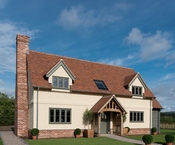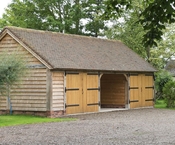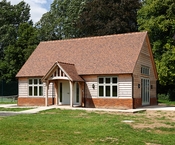Border Oak have been at the forefront of sustainable design and construction for more than four decades, and we continue to innovate and pioneer sustainability advances within the self-build sector.
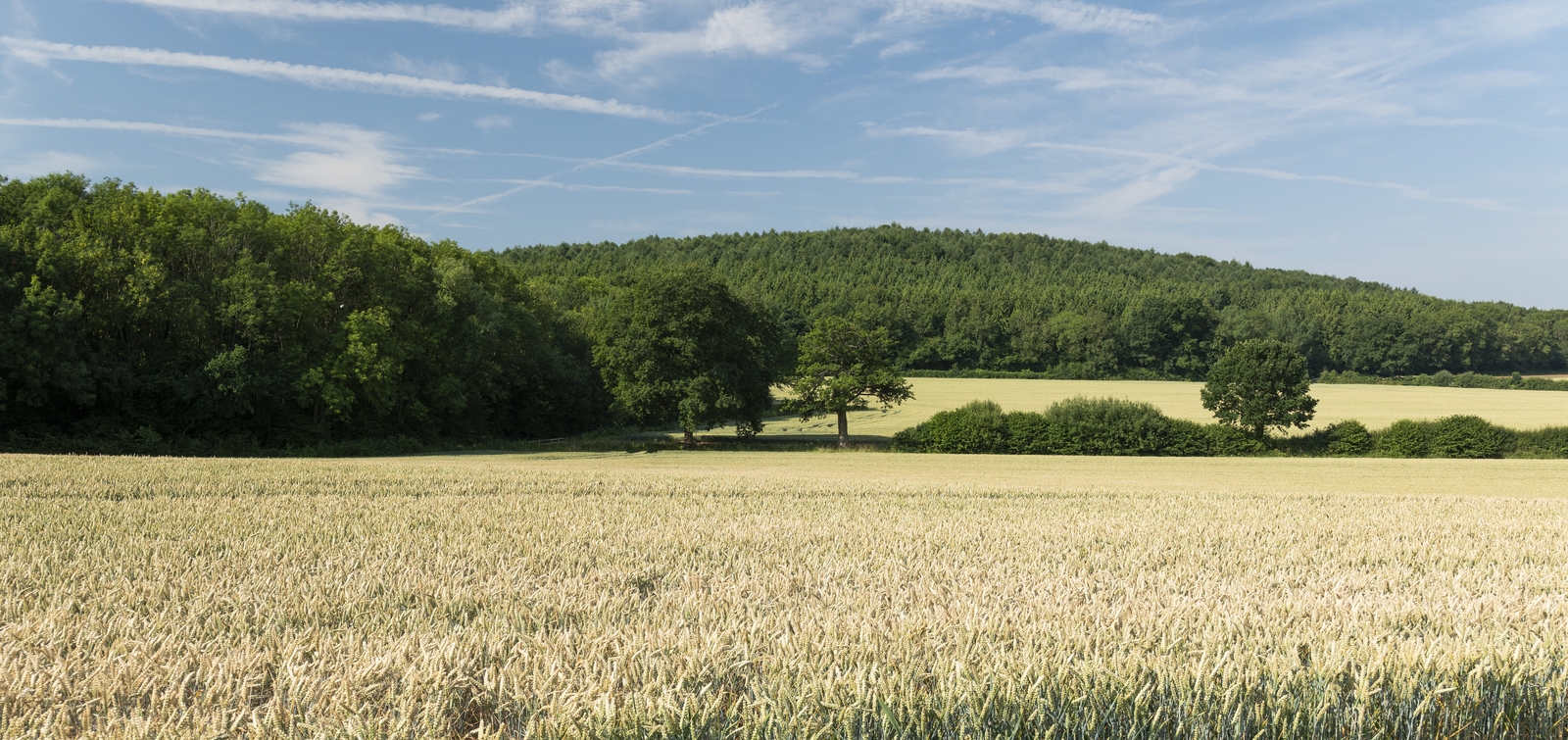
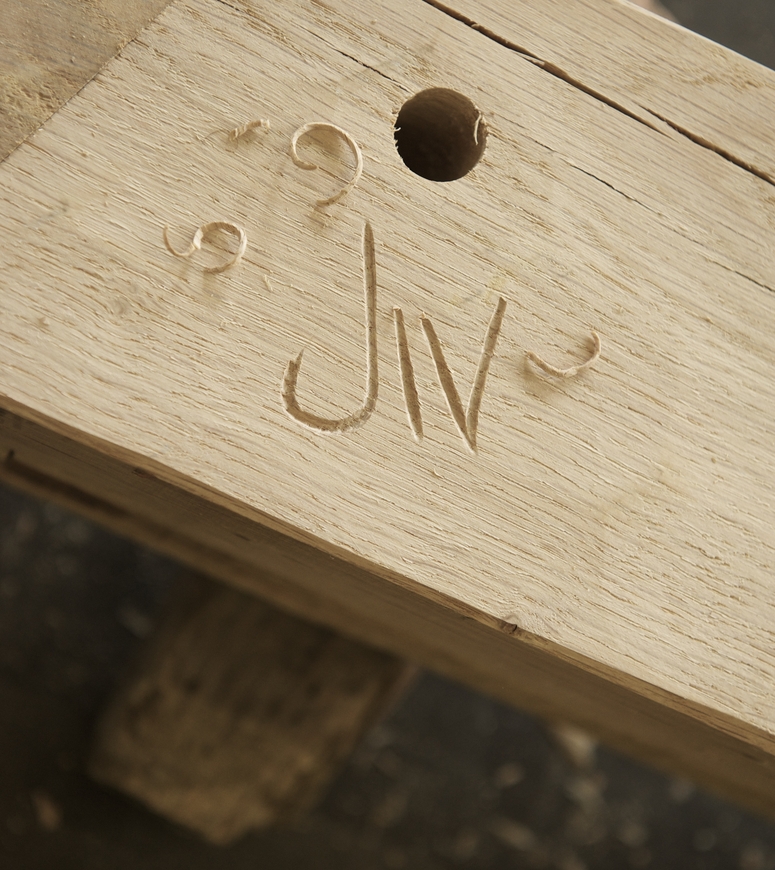
Homes that won't cost the earth...
We believe that our buildings should positively contribute to the environment in the widest possible sense.
We would be delighted to discuss your personal priorities in more detail and to design a building that reflects your sustainability aims - as a bespoke design company we have complete flexibility whilst keeping sustainability at our core.
Our approach is broad based and starts with our renowned 'fabric first' approach. We produce buildings that are super insulated, passive solar orientated and use natural materials and low embodied energy processes. Oak framing is arguably the most ecological construction product available, and Border Oak is very proud to be one of only a handful of construction companies who are fully FSC® or PEFC certified for the supply of timber with an ethical procurement policy.
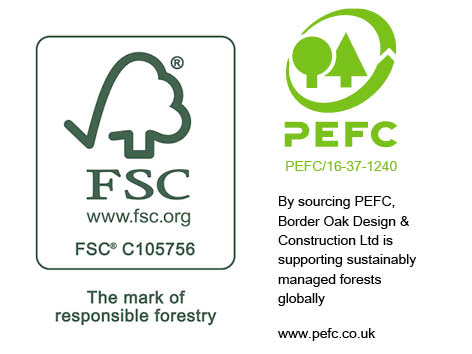
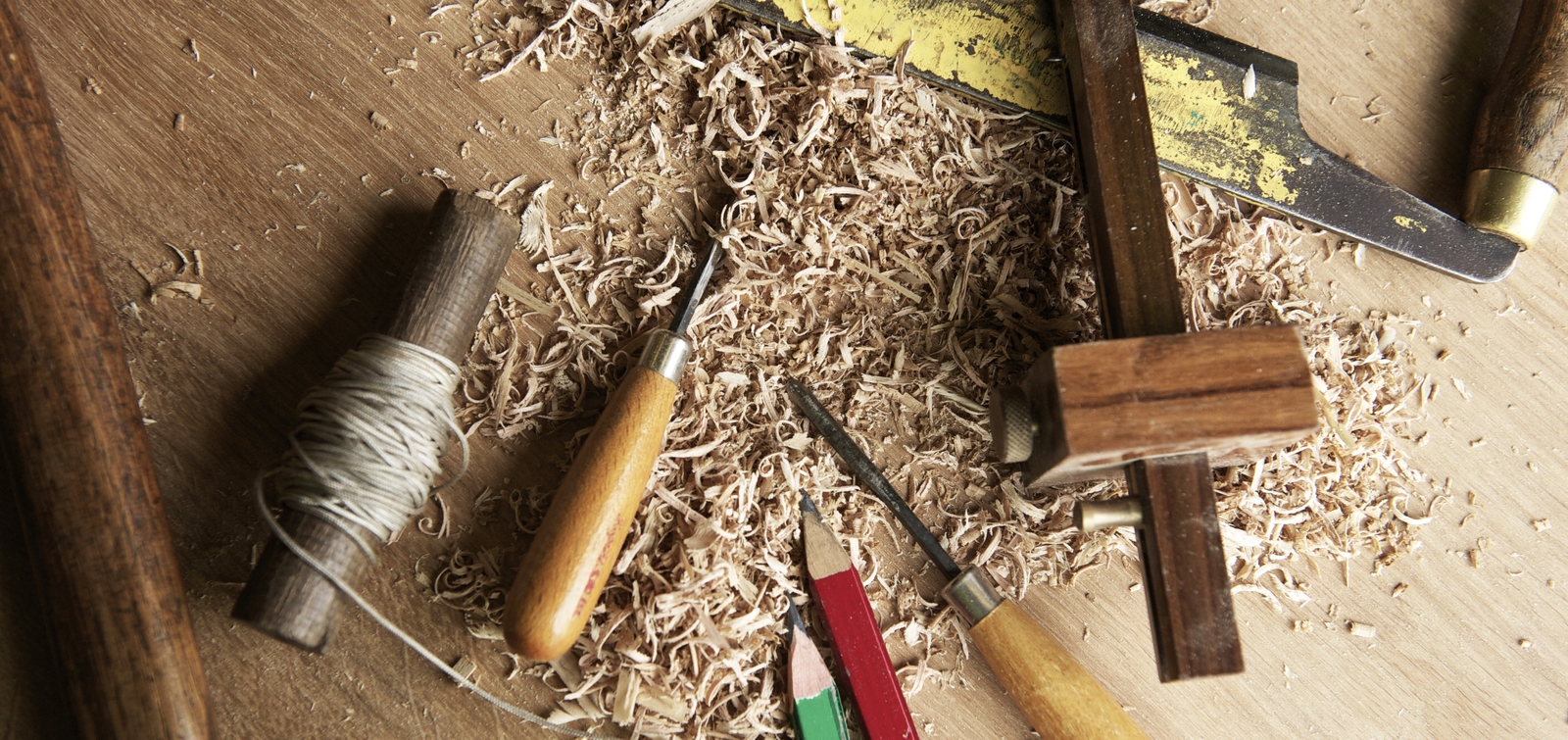
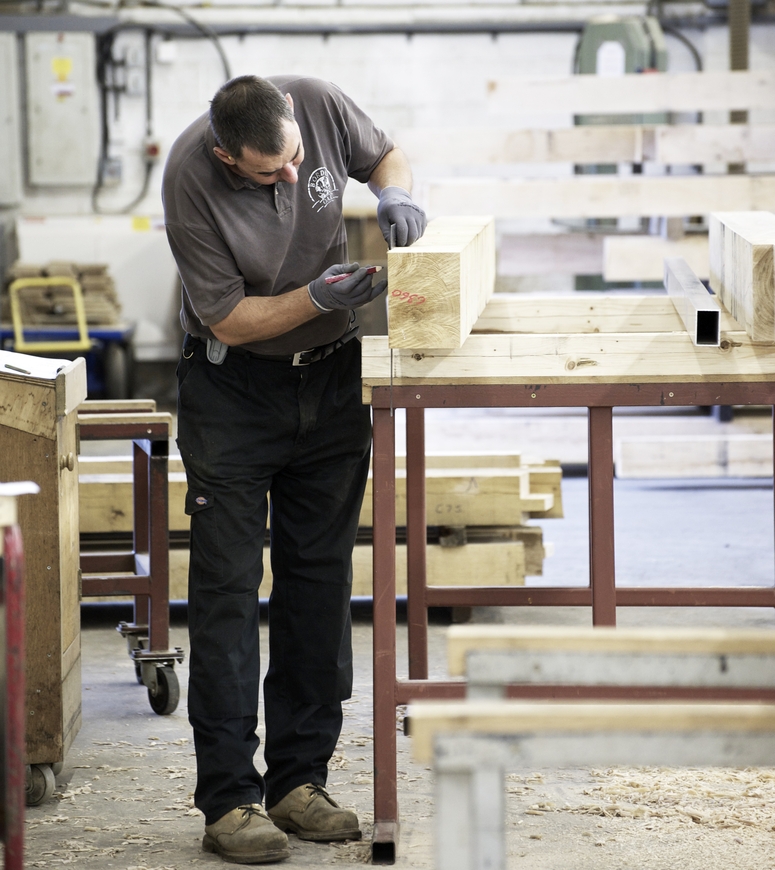
Here are some of the sustainability features a typical Border Oak project might include:
- Superlative insulation standards
- Natural, low impact materials
- Green oak - natural, carbon store, low embodied energy, non-toxic, renewable, long lasting
- Fabric first approach - sustainable by design from the very beginning
- Passive solar design - maximising the benefits of natural light
- Virtually airtight - applying innovative materials and methods
- Air source heat pumps, ground source heat pumps, biomass boilers - whichever system suits your plot and aspirations
- Minimal thermal bridging - sustainable by design
- PV panels, solar thermal technology - where appropriate
- Wellness and Biophilic design approaches
- Local purchasing and 'return of goods'
- FSC® or PEFC Chain of Custody certified timber
- Award winning waste minimisation scheme
- Reclaimed, recycled and reuseable materials
- Grey water harvesting, reduced water usage and sustainable drainage schemes
- Carbon neutral, carbon positive and low embodied energy - homes that demand minimal energy and create minimal carbon
- Minimising concrete, cement and steel - toxic, highly processed materials that can be difficult to reuse

